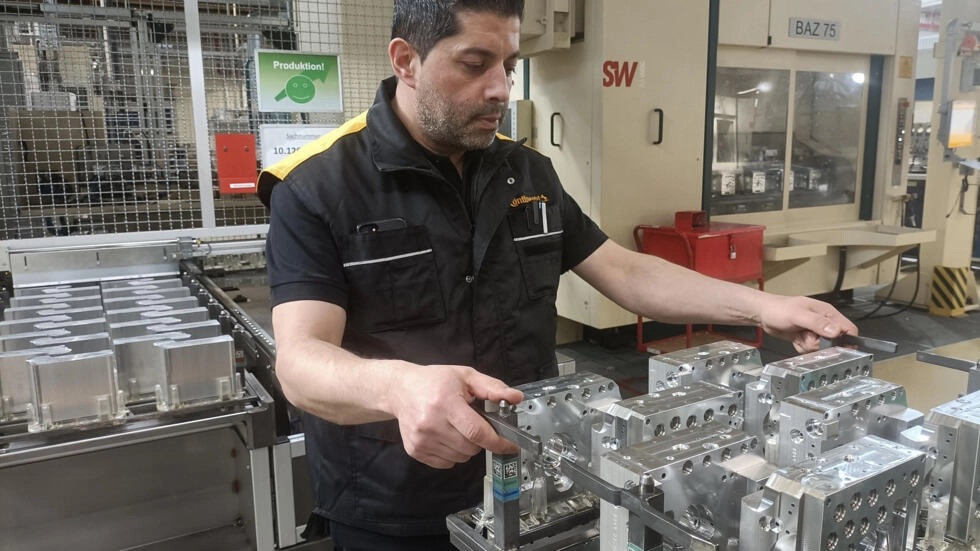Are European auto suppliers at a dead end?
(Baonghean.vn) - The double shock of the cessation of internal combustion engine use and increasing competition from China has forced European suppliers such as Bosch, ZF and Webasto to cut labor...

Change and adapt
Emrullah Karaca has been making brakes for 20 years, but now he is learning to assemble heat pumps because the Continental factory where he works in northern Germany is about to close.
Continental said the famous tire brand will cut about 7,000 jobs worldwide. Production of auto parts in the German town of Gifhorn will end in 2027, then move to Croatia, the Czech Republic and Wales to keep costs “competitive”.
The move means finding a new job for Karaca, now 49, and he is just one of a growing number of workers at Germany's key auto suppliers hit by a tsunami of job losses.
Faced with the double whammy of the loss of the internal combustion engine and growing competition from China, European suppliers such as Bosch, ZF and Webasto have all announced job cuts – an issue that has cast a shadow over the upcoming EU elections.
Brussels has promised more moves to boost the bloc's auto industry and tackle unfair competition from cheaper Asian rivals.
But the EU plans to ban the sale of new fossil fuel-powered cars from 2035, meaning some jobs will inevitably become redundant too.
Returning to the upcoming closure of the Continental plant in Gifhorn, it was a catalyst for Karaca and the 800 other employees working there to begin retraining in another field.
A local heating company, Stiebel Eltron, has proposed taking over the site and retaining some of the staff for future production.
“Brakes or heat pumps, it's all the same to me,” said Karaca, whose parents both worked for Continental at the plant.
Manufacturing exhaust pipes, headlights, gearboxes or brakes has long been a stable business, employing around 270,000 people in Germany alone.
But the technologies they specialize in are now outdated, and making battery-powered cars is a less labor-intensive process.
“If today you need 100 people to produce a normal motor, with an electric motor you only need 10 people,” said Jutta Rump, professor of business at Ludwigshafen University.
In Gifhorn, Stiebel Eltron is offering the prospect of creating additional jobs for around 300 Continental employees.
Another 100 people were able to find shelter at a nearby Siemens mobile factory, which supplies railway companies.
The outlook is not bright
Those that remain are under increasing pressure from Chinese competitors, as they take an increasing share of the market.
Chinese battery maker CATL has grown in a short space of time to become the world's third-largest automotive supplier, in a sector still led by Bosch, according to consultancy Roland Berger.
In Germany, one in three companies in the sector is planning to move part of its production abroad in the coming years to cut costs, according to a study by the German carmakers association VDA.
The “axe” fell on the heads of 3,400 workers at Ford's factory in Saarlouis, western Germany.
The factory closures dragged down a network of local suppliers, whose workers staged a six-day strike in March to secure better severance pay terms.
Among them, Luca Thonet, 33, who works for Ford supplier Lear, said he wanted to stay in the area, which is close to the French border: “But there is hardly any industry left in the area and other factories are not in very good shape.”
Thonet cited the situation at ZF, Germany's second-largest auto supplier, which has announced the closure of two facilities in its domestic market.
The ZF works council fears around 12,000 jobs could be cut.
Germany may be facing a labor shortage, but not all sectors are affected equally.
In IT, product development and sales, “there is a shortage of qualified people,” says Rump. But that’s not the case in manufacturing, he says.
